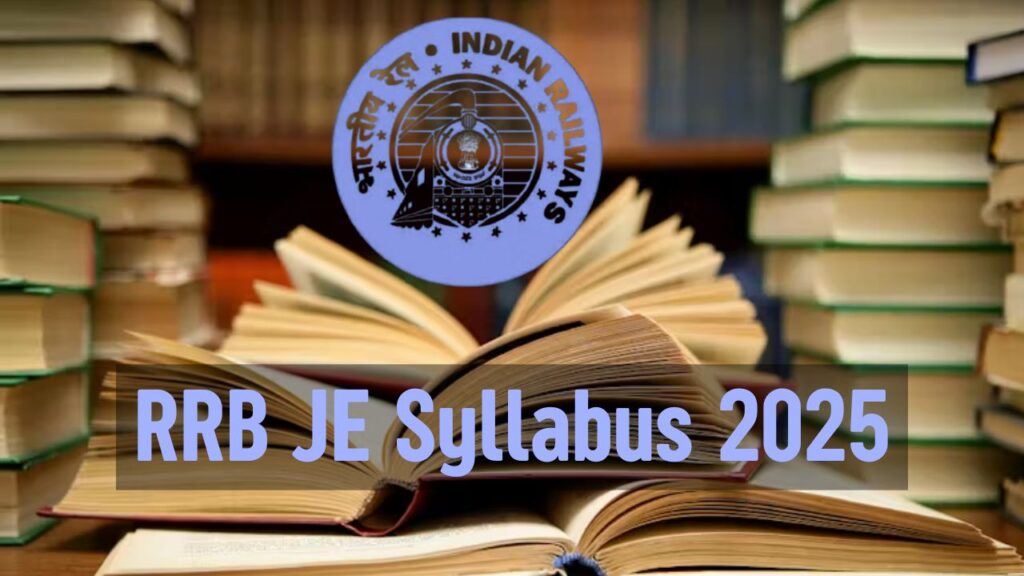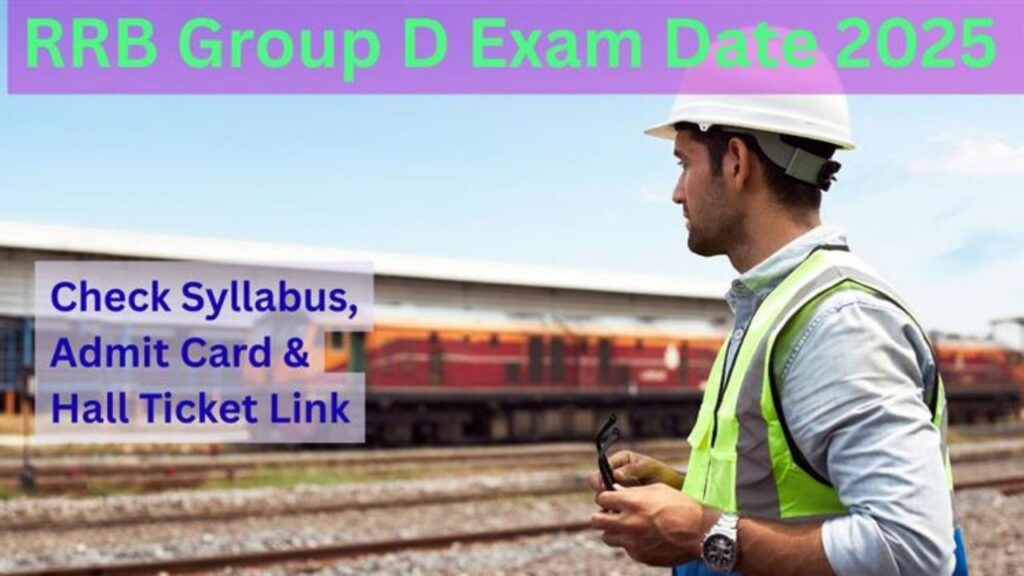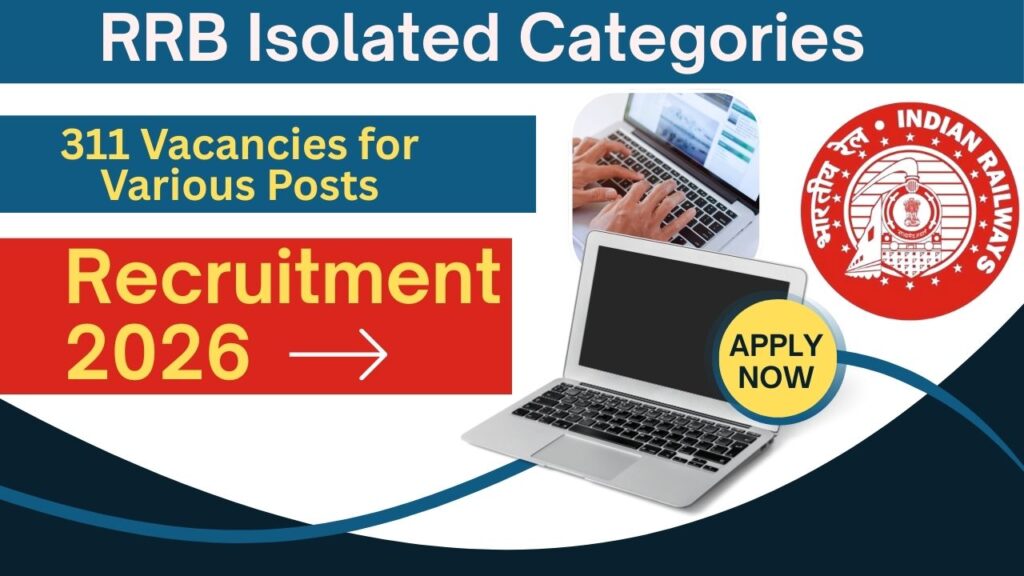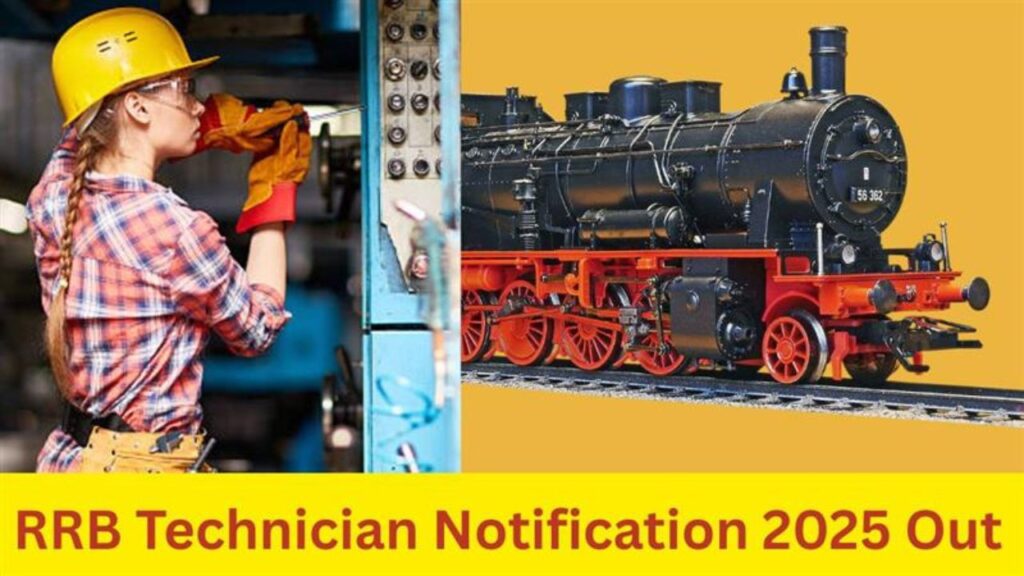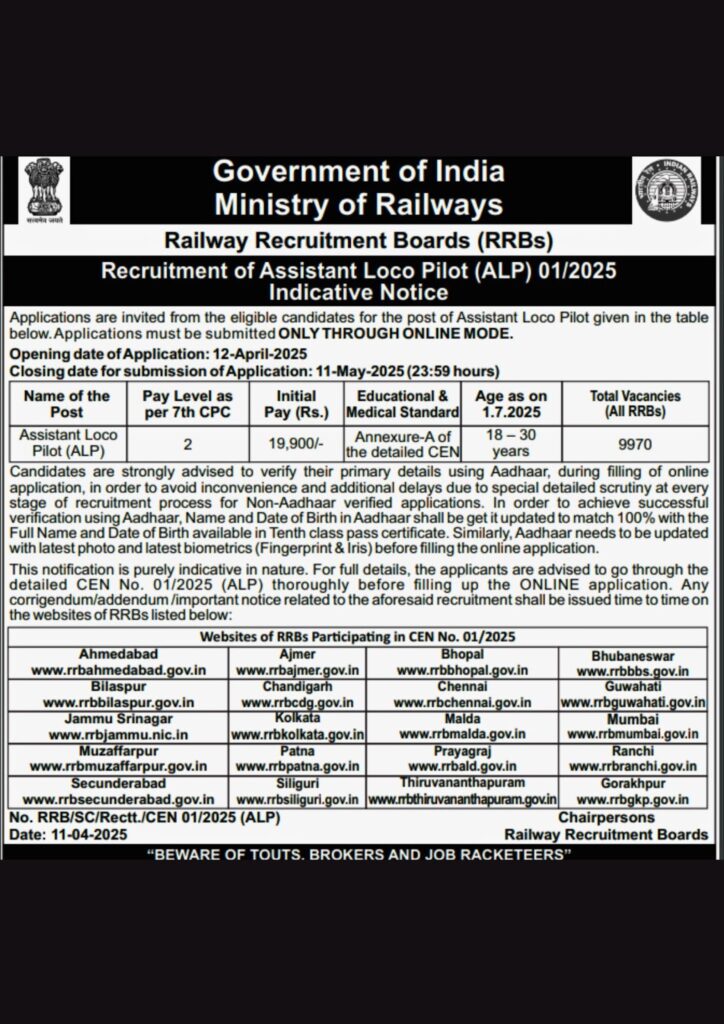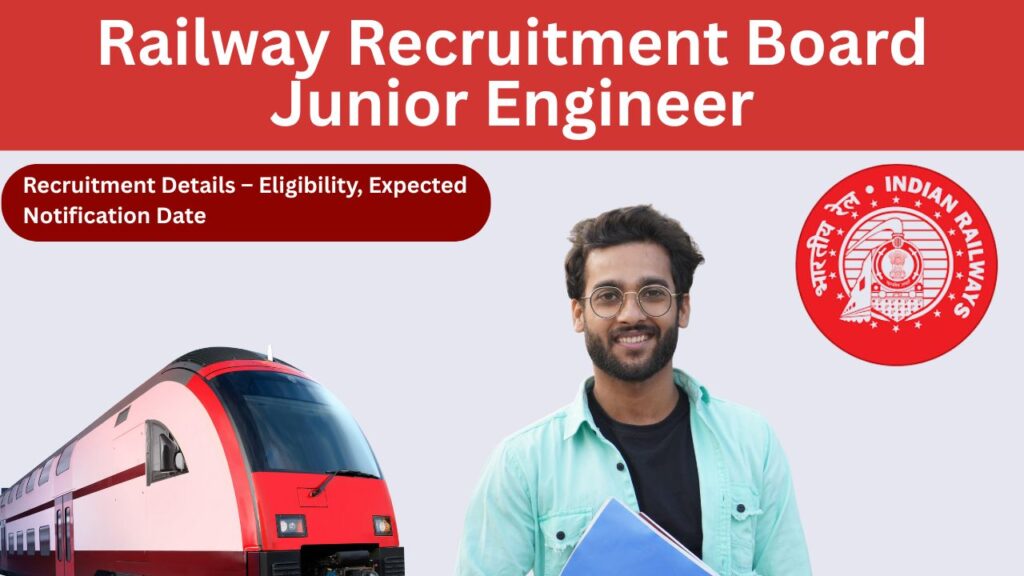RRB JE is a recruitment exam for Junior Engineer Jobs in the Railway sector. This is a competitive exam for those who wish to establish a stable career as an engineer in the Railways. It is conducted by the Railway Recruitment Board (RRB).
The RRB recruits junior engineers for the technical roles in Railways through this exam. Candidates who want to have a strong and stable career in the railway sector are preparing so well to get the highest score. Lakhs of students apply for this exam to get a job.
The RRB JE 2025 exam is designed to fill vacancies for Junior Engineers (JE), Junior Engineer (IT), Depot Material Superintendent (DMS), etc. For cracking the RRB JE 2025 you must consistently check the updated syllabus and exam pattern. Candidates must have the technical skills and knowledge before applying for this job role. The selection process is difficult as this reflects the critical responsibilities. Junior Engineers have a role in maintaining and developing systems across the Railway.
RRB JE Exam Pattern 2025
Exam Pattern for RRB JE CBT-1
In this exam, each question carries 1 mark, and the total number of questions is 100. The duration of the exam is 90 minutes. All the questions are objective-type multiple-choice. If there is an incorrect answer then the 1/3rd mark is deducted as a negative marking.
Sections and Distribution of Questions
| Section | Number of Questions | Marks |
| Mathematics | 30 | 30 |
| General Intelligence & Reasoning | 25 | 25 |
| General Awareness | 15 | 15 |
| General Science | 30 | 30 |
| Total | 100 | 100 |
Minimum Qualifying Marks
It depends on the category or financial status of the candidate. Economically weaker and unreserved candidates get 40% minimum qualifying marks. Scheduled Caste and Backward get 30% minimum qualifying marks. Scheduled Tribe gets 25% minimum qualifying marks.
RRB JE CBT 2 Exam Pattern 2025
Each question in CBT-2 carries 1 mark and makes a total of 150 marks. Candidates must complete the exam in 2 hours. For each Wrong answer, 1/3rd mark is deducted as a negative marking.
Sections and Distribution of Questions
| Section | Number of Questions | Marks |
| General Awareness | 15 | 15 |
| Physics & Chemistry | 15 | 15 |
| Basics of Computers and Applications | 10 | 10 |
| Basics of Environment and Pollution Control | 10 | 10 |
| Technical Abilities (as per discipline) | 100 | 100 |
| Total | 150 | 150 |
Minimum Qualifying Marks
For unreserved candidates minimum qualifying marks are 40%. Other backward classes and Scheduled caste got 30%, Scheduled Tribe got 25%.
Also Read: RRB NTPC Syllabus 2025: CBT 1 & 2 Detailed Exam Pattern
RRB JE Syllabus 2025
RRB JE CBT 1 Exam 2025 Syllabus
TThis exam pattern is dependent on assessing the candidates’ ability across four sections, i.e. Mathematics, General Intelligence & Reasoning, General Awareness, and General Science. To maximize your score you must prepare all the sections and every section has crucial topics.
Mathematics
The mathematics section contains topics such as Number Systems, BODMAS, Decimals and Fractions, LCM & HCF, Ratio and Proportion, Simple and Compound Interest, and Profit and Loss, these topics are easy but important to practice for preparation. Percentages, Mensuration, Time, Work and Distance, Algebra, Geometry, Trigonometry, Elementary Statistics. Mastering these topics will get you ready for the quantitative section with confidence.
General Intelligence and Reasoning
This section assesses the candidate in their abilities through Analogies, Alphabetical and Number Series, Coding and Decoding, Mathematical Operations, Relationships, Syllogism, Venn Diagram, Data Interpretation and Sufficiency, Conclusions and Decision Making, Similarities and Differences, Analytical Reasoning, Statement (Arguments and Assumptions). By preparing this topic proof your logic and reasonable thoughts also enhance your speed in recognizing patterns. Candidate must practice for these topics consistently.
General Awareness
General Awareness contains topics such as Current Affairs, Indian Geography, Culture and History of India (including the freedom struggle), Indian Polity and Constitution, Indian Economy, Environmental Issues (India and the World), Sports, and General Scientific and Technological Developments. These topics have to enhance the powerful skill for staying updated or be the first to know everything that could effective and influential on the nation or internationally. Staying updated with daily news and revising static GK will be beneficial for this section.
General Science
Physics, Chemistry, and Life Sciences have a strong grasp of fundamental scientific principles. This section is easy because it contains the 10th class syllabus of basic science. However, it is easy as well as mandatory to rank high score in this section.
RRB JE CBT 2 Syllabus
General Awareness
The General Awareness section in CBT 2 covers all topics from CBT 1—such as current affairs, Indian geography, history and culture, Indian polity, economy, environmental issues, sports, and scientific developments but with deeper topics and complexity. So, be prepared well for the CBT-2 because it is hard as compared to the CBT-1. As you have cleared out CBT-1, you could prepare a general awareness section easily it covers the day-to-day updates and old important events or locations. Focus more on national and international events, and government schemes.
Physics & Chemistry
CBT-2 focuses on deeper concepts of physics and chemistry that are relevant to engineering. Candidates are expected to have a solid grasp of core concepts from both subjects, the basic principles and laws, 10th class NCERT can also have such concepts which can help to crack this exam.
Basics of Computers and Applications
This section focuses on computer fundamentals, networking, MS Office, and operating systems. Candidate must have basic knowledge of these basic computers. As for the engineering job posts technical skills are required and computer application is one of the concepts every candidate must learn.
Basics of Environment and Pollution Control
This section includes environmental concepts of pollution (air, water, noise) and also its effect on the land, global warming (one of the rising topics of these days), ozone depletion is the layer around the earth which is decreasing day-by-day, waste management, and sustainable development. Sustainable development is rising in every sector because of the necessity and people’s support for a sustainable future. Mastering these topics will help you to maximize your score in these sections.
Technical Abilities (as per discipline)
The Technical Abilities section covers the topic of engineering and varies to the candidates’ branch such as Civil, Mechanical, Electrical, or Electronics. This section tests the knowledge of the candidate in their respective field of engineering. Ensuring a thorough assessment of core concepts and practical knowledge required for junior engineering roles in Indian Railways.
| Branch | Key Topics |
| Civil Engineering | Building material includes the construction needs to build the infrastructure.- Surveying: Measurement techniques, leveling, mapping, and surveying instruments. Without the help of the instrument, it is impossible to build something accurate.- Hydraulics: resources of water, Fluid properties, etc- Structural Engineering: Analysis and design of beams, and columns.- Transportation Engineering: all four means of transportations engineering.- Estimation and Costing: Preparation of budgets, cost analysis, valuation in construction.- Soil Mechanics: soil fertilization, classification, properties- Environmental Engineering: pollution and global warming effects, sustainability |
| Electrical Engineering | – Basics of Electrical Circuits: Circuit laws, network theorems, analysis.- Electrical Machines: Transformers, motors, generators- Measurement techniques, instrument types, calibration.- Control Systems: Feedback mechanisms, stability, automation.- Utilization of Electrical Energy: Lighting, heating, traction, industrial applications.- Power Systems: Generation, transmission, distribution, protection systems.- Basic Electronics: Semiconductors, digital electronics, diodes |
| Mechanical Engineering | – Strength of Materials: Stress-strain analysis, properties, failure theories.- Manufacturing Processes, Engineering Mechanics, Heat Transfer: Conduction, convection, radiation, thermal insulation.- Thermodynamics, Machine Design, Fluid Mechanics |
| Electronics & Communication Engineering | – Basic Electronics: Semiconductors, transistors- Digital Electronics: AND AND NOR- Logic gates- Communication Systems: Analog OR digital communication, modulation, transmission, frequency.- Control Systems: Feedback, stability, process control.- Network Theory: Circuit analysis, filters, network theorems.- Instrumentation: Measurement systems, transducers, signal conditioning. |
| Computer Science & IT | – PC Software: MS Windows, Word, Excel, PowerPoint.- Computer Fundamentals: Hardware, Software, Internet basics.- Programming Languages: OOP concepts, Java, C++- Data Structures: Arrays, stacks, searching, sorting.- DBMS: Relational models, SQL, triggers, database design.- Operating Systems: Linux, commands, system administration.- Web Technologies: HTML, web servers, internet protocols, security.- Networking: OSI model, TCP/IP, topologies, transmission media, error detection/correction. |
| Printing Technology | – Printing Systems: Methods, image carriers, ink transfer, proofing.- Printing Materials: Substrates, inks, coatings, binding materials.- Flexo, Gravure, Screen Printing: Principles, preparation, press work.- Image Processing: Photography, digital processing, editing software.- Design & Advertising: Typography, book/magazine design, advertising agency operations. |
